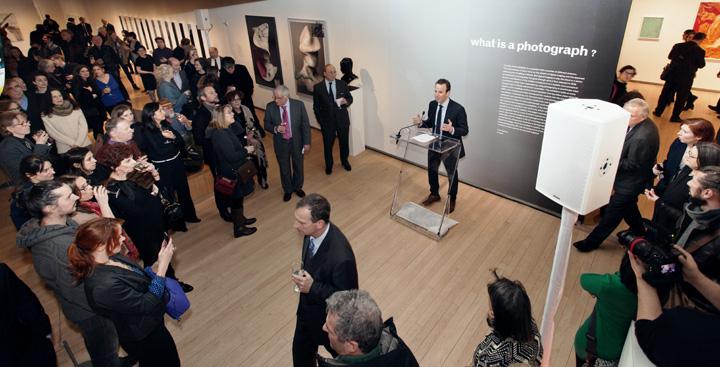Questions for Mark Lubell of ICP
Last November, Mark Lubell was appointed Executive Director of the International Center of Photography (ICP) following the departure of Mark Robbins, who left the job as director of the museum and school after 19 months to become President and CEO of the American Academy in Rome.
Mr. Lubell was Director of Magnum Photos from 2004 until 2011. During his tenure, he negotiated the sale of the Magnum press print archive to Michael Dell and his investment firm, MSD Capital, and its placement at the Harry Ransom Center at the University of Texas. Since leaving Magnum, he has been working as a consultant. Soon after opening the current exhibitions at ICP last month, (photo below), he did this exclusive email interview for DART.
Peggy Roalf: What are the greatest challenges facing ICP as an institution and as a cultural destination today?
Mark Lubell: The greatest challenge for this organization is to engage with audiences in new ways. The world has been disrupted by technology, which has forever changed how we communicate. The wonderful advantage for ICP is that these new communication tools are image-driven.
We are all visually communicating, millions of us are now image makers, but this doesn’t mean that we are all photographers. Imaging technology being employed today, which is evolving so rapidly, is pretty much irrelevant. The ease and competence of the technology makes it almost too easy to take pictures—and, more exactly, to produce images. One of most pressing challenges now (and one of the most important skills to develop and teach) is to find pictures, understand them, and use them to make sense of the world. You have to tune out (or at least recognize) what is irrelevant and insignificant, to curate the onslaught of images and information. The challenge is also to understand the process itself, a process that embraces all kinds of visual information, and data, and communication, as well as social networking in all of its evolving forms.

PR: How do you envision developing support for this
multi-faceted organization going forward?
ML: ICP remains a mission-oriented organization and is a hub for a range of activities related to photography and visual communication. Our Board and staff are working on several fronts to develop support for all of the activities we are pursuing. I am personally excited by the new opportunities we are developing that fall outside the traditional nonprofit model.
PR: What are the greatest challenges facing the School at ICP?
ML: Much of what I said in my previous answer relates to the school. Technology has changed photography and photography has changed technology. There is a tremendous opportunity for our school in this new world of visual communication.
PR: Do you see an expansion of ICP's online learning program, relatively new in the Continuing Education department, perhaps becoming integral to the Certificate and Degree programs?
ML: We have been a leader with Online Education, building out our own platform and it’s been very successful. We are planning an expansion that will include our Certificate and Degree programs but we want to grow intelligently and ensure that we continue to offer high-quality experiences.
PR: Do you envision expanding the sweep of ICP’s traveling exhibitions program? (I’ve been watching with interest the presentation of The Rise and Fall of Apartheid: Photography and the Bureaucracy of Everyday Life at Museum Africa in Johannesburg, and am hoping to do a feature about the Tumblr write-in blog that’s been set up).
ML: Absolutely. It is fantastic to be in an organization that is part of a global conversation. The traveling exhibition program is an amazing asset of ICP and will become increasingly visible over the next few years. The Rise and Fall of Apartheid: Photography and the Bureaucracy of Everyday Life has been a tremendous success and we’re already in talks to extend its run. Our Roman Vishniac exhibition is going to be on view in the Netherlands and then France and we’re excited that more people are going to have the opportunity to learn about and see this work, too.
PR: What are your plans for celebrating ICP’s 40th Anniversary?
ML: We have a committed group of Board members working on this
celebration and will announce plans later this year.
Note: If you like this article, and you want to subscribe to the DART newsletter, go here.


